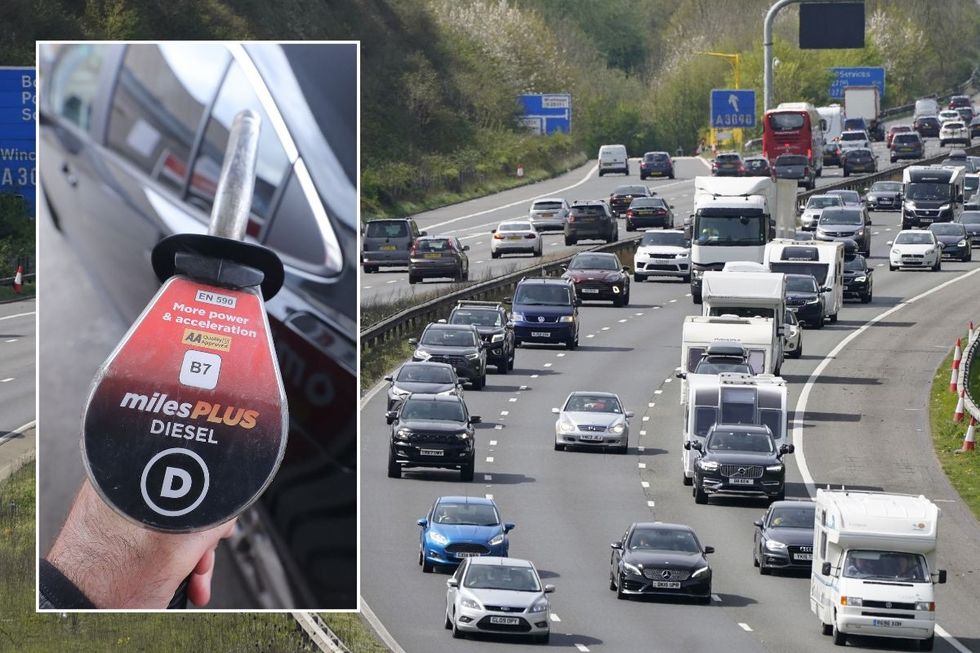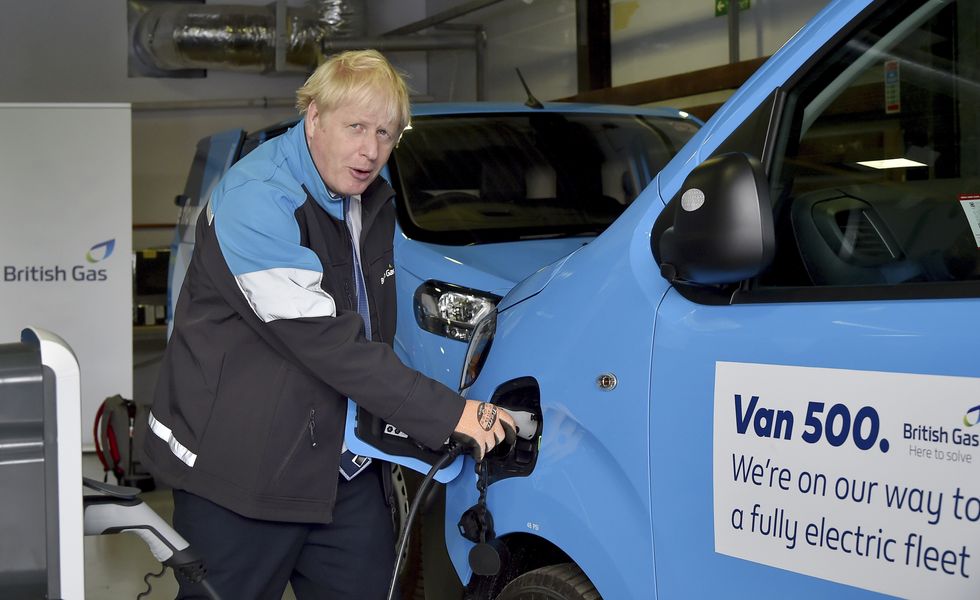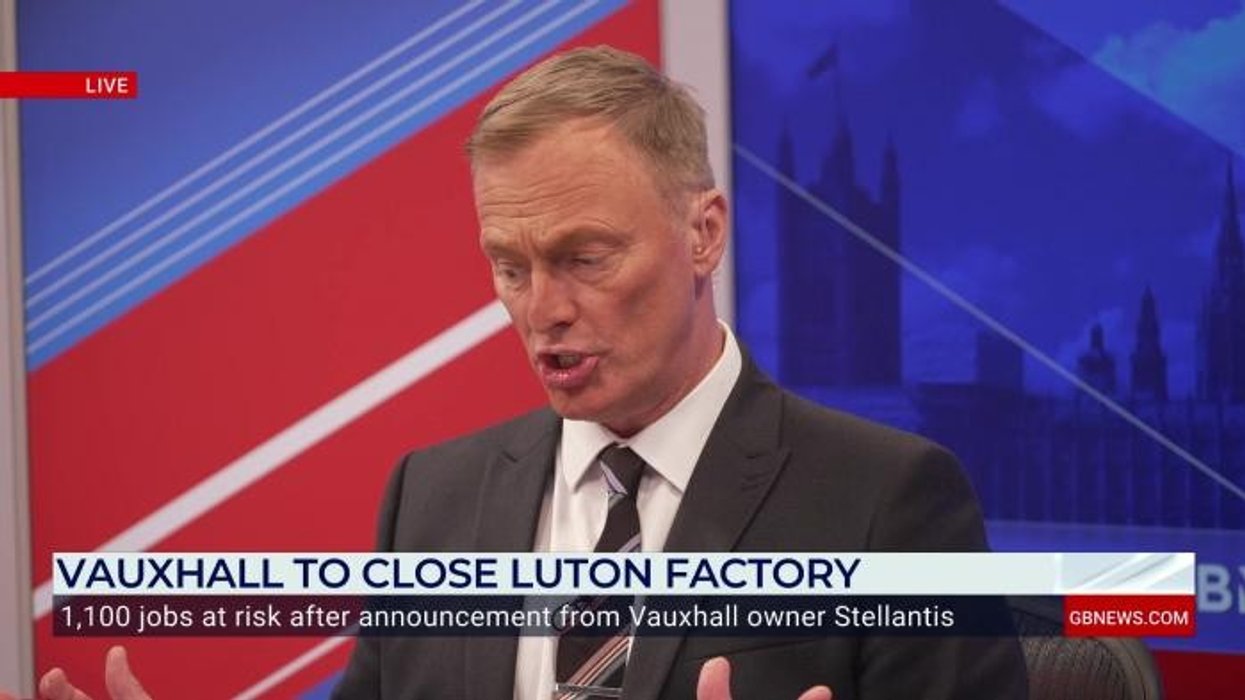Diesel vehicles threaten 2030 car ban deadline amid serious emissions fears - 'A real problem'

'Van fleet operators need real options, not just the choice between new large electric vans or nothing'
Don't Miss
Most Read
The UK's struggle to transition to electric vans continues as diesel vehicles still dominate 94 per cent of the market, according to the latest report from the European Automobile Manufacturers' Association.
Despite Government mandates and the approaching 2030 ban on new petrol and diesel vehicles, adoption of electric vans remains critically low.
Fleet experts are warning that without embracing retrofitting as a solution, the UK will fail to reduce emissions from commercial vehicles.
With vans responsible for 40 per cent of logistics emissions and 4.6 million on British roads, the slow transition poses a significant challenge to climate goals.
Do you have a story you'd like to share? Get in touch by emailing motoring@gbnews.uk

Diesel vehicles could stay on the road for much longer than initially anticipated
|GETTY
The UK fell short of its 2024 Zero Emission Van mandate, achieving just 5.7 per cent instead of the required 10 per cent target. The situation shows no signs of improvement, with van sales declining for the fourth consecutive month as of March 2025.
Despite the continued availability of the Plug-in Van Grant, battery electric vehicles accounted for only 8.2 per cent of the market share last month.
Particularly concerning is the sale of just 318 large BEV vans in the 3.5-4.25 tonne category during this period, according to the Society of Motor Manufacturers and Traders (SMMT).
Osman Boyne, founder and CEO of BEDEO, said: "Van fleet operators need real options, not just the choice between new large electric vans or nothing. Retrofitting extends the lifespan of existing large vans, keeps businesses moving, and drastically reduces emissions without breaking the bank.
"Not to mention that it does all this without impacting payload, which we know is a real problem for managers of large van fleets."
Boyner warns that the 2035 phase-out of fossil-fuelled vehicles won't significantly reduce carbon emissions if existing petrol and diesel vehicles continue polluting for decades after the ban.
"To put this into perspective, in 2024, van vehicle miles racked up 58.7 billion miles, and in general, vans in the UK are responsible for 18 per cent of all vehicle miles. That's a fair amount of greenhouse gases," Boyner added.
Retrofitting can cost up to 50 per cent less than purchasing a new large battery-electric van and prevents unnecessary vehicle scrappage while also cutting emissions immediately.
Boyner said it was time for the UK Government to support "real-world solutions" instead of ignoring practical challenges faced by fleets of large vans.
He stated: "I fear we'll look back and wish we had taken action today, and looked at a viable solution that's available today - retrofitting and not ignoring its ability to decarbonise."
Recent data shows a concerning 10.5 per cent year-on-year increase in diesel van registrations across the EU, suggesting that companies are rushing to secure diesel-powered vans before regulatory bans take effect.
Such behaviour further entrenches diesel's dominance in the commercial vehicle sector and locks in emissions for years to come, creating a long-term environmental problem.
LATEST DEVELOPMENTS:
- BP slammed for slashing electric car targets which could have 'deadly consequences' for 'thousands of people'
- A1 crash: Man, 20, charged over horror accident that saw seven police officers rushed to hospital
- Motorists could escape prosecution with driving law loophole despite breaking Highway Code rules

The Government has supported the uptake of electric vans through the Plug-in Van Grant
| PAWith the average age of light commercial vehicles in the UK at less than 10 years and rising, these newly purchased diesel vans will likely remain on the roads well past 2040.
Experts warn this timeline significantly undermines the intended impact of the 2035 fossil fuel vehicle ban.











